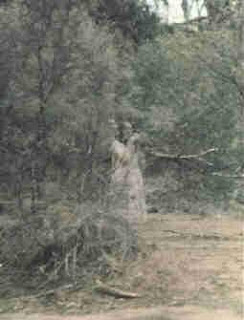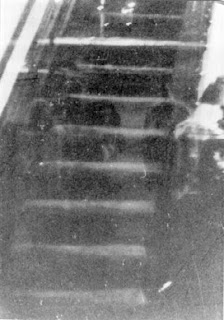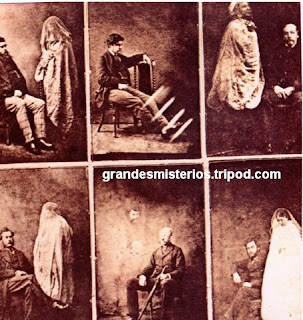Symptoms of possession in people:
( ATTENTION: before or during the use of ANY Paranormal analysis, ONE should always undergo a evaluation of your medical and psychiatric ( psicological) status)-Depression
-Sudden mood swings.
-Higher-capacity or lack of physical strength.
-Unexplained Disease.-Constant sickness.
-Persistent headaches.
-Insomnia.
- Continuous Lack of luck.
-Constant problems with the law.- Anti-social behaviour.-Tremors on one limb.
-Speaking in dead tongues.
-Lack of initiative.
- Unexplained marks on the body.
-sudden chills throughtout the body or parts of the body.
-Vices.
-Feeling of heaviness in the body.
-Repeated involuntary movements of the body (moving in a certain part of the body, sudden tics).
-Feeling of loss.
-Frustration.
-Feeling of emptiness.
-Feeling out of control.
-Search for violence.
-Lack of will
-Violent behavior.-Suicidle thoughts. 10 symptons of spiritual oppression :
http://www.youtube.com/watch?v=ZMTkn4yq-5Q
Sytoms in Houses:
-TEMPERATURES DIFERENCES THROUGHTOUT DIFFERENT PARTS OF THE HOUSE.
- Inexplicatable cold/chill.
-Sudden object disappearence and reappearance elsewhere.
-Moving , floacting objects of sadness/ dis confort inside the house.
-Lack of of will to do stuf in the house,
-Strange noises without explanation.
-Feeling Drafts without windows open.
-Doors moving ( opening closing without any outside interference.
-Feeling watched and observed.
-Hearing voices / wispers.
- Eletrical appliances sudendly stop working wothout apearant raison.
-Variations in eletric / magnitic fields ( ex: lights surges etc.)
-Clocks suddenly stop on start, rotating, counter-clock wise.
-Apeareance of unknown figures.
Paranormal phenomena are distinct from certain hypothetical entities, such as dark matter and dark energy, only insofar as paranormal phenomena are inconsistent with the world as already understood through empirical observation coupled with scientific methodology.
Thousands of stories relating to paranormal phenomena are found in popular culture, folklore, and the recollections of individual subjects. In contrast, the scientific community, as referenced in statements made by organizations such as the United States National Science Foundation, maintains that scientific evidence does not support a variety of beliefs that have been characterized as paranormal.
“Paranormal” has been in the English language since at least 1920.It consists of two parts: para and normal. In most definitions of the word paranormal, it is described as anything that is beyond or contrary to what is deemed scientifically possible. The definition implies that the scientific explanation of the world around us is the 'normal' part of the word and 'para' makes up the above, beyond, beside, contrary, or against part of the meaning.
Para has a Greek and Latin origin. Its most common meaning (the Greek usage) is 'similar to' or 'near to', as in paragraph. In Latin, para means 'above,' 'against,' 'counter,' 'outside,' or 'beyond'. For example, parapluie in French means 'counter-rain' – an umbrella. It can be construed, then, that the term paranormal is derived from the Latin use of the prefix 'para', meaning 'against, counter, outside or beyond the norm.
Paranormal Research
An anecdotal approach to the paranormal involves the collection of stories told about the paranormal.
Charles Fort (1874–1932) is perhaps the best known collector of paranormal anecdotes. Fort is said to have compiled as many as 40,000 notes on unexplained paranormal experiences, though there were no doubt many more than these. These notes came from what he called "the orthodox conventionality of Science", which were odd events originally reported in magazines and newspapers such as The Times and scientific journals such as Scientific American, Nature and Science".




Reported events that he collected include teleportation (a term Fort is generally credited with coining); poltergeist events, falls of frogs, fishes, inorganic materials of an amazing range; crop circles; unaccountable noises and explosions; spontaneous fires; levitation; ball lightning (a term explicitly used by Fort); unidentified flying objects; mysterious appearances and disappearances; giant wheels of light in the oceans; and animals found outside their normal ranges (see phantom cat). He offered many reports of OOPArts, abbreviation for "out of place" artifacts: strange items found in unlikely locations. He also is perhaps the first person to explain strange human appearances and disappearances by the hypothesis of alien abduction, and was an early proponent of the extraterrestrial hypothesis.
Fort is considered by many as the father of modern paranormalism, which is the study of the paranormal.
The magazine Fortean Times continues Charles Fort's approach, regularly reporting anecdotal accounts of the paranormal.
Such anecdotal collections, lacking the reproducibility of empirical evidence, are not amenable to scientific investigation. The anecdotal approach is not a scientific approach to the paranormal because it leaves verification dependent on the credibility of the party presenting the evidence. Nevertheless, it is a common approach to paranormal phenomena.
Skeptical scientific investigation
James Randi is a well-known investigator of paranormal claims.
Scientific skeptics advocate critical investigation of claims of paranormal phenomena: applying the scientific method to reach a rational, scientific explanation of the phenomena to account for the paranormal claims, taking into account that alleged paranormal abilities and occurrences are sometimes hoaxes or misinterpretations of natural phenomena. A way of summarizing this method is by the application of Occam's razor, which suggests that the simplest solution is usually the correct one.The standard scientific models gives an explanation for what appears to be paranormal phenomena is usually a misinterpretation, misunderstanding, or anomalous variation of natural phenomena, rather than an actual paranormal phenomenon.
The Committee for Skeptical Inquiry, formerly the Committee for the Scientific Investigation of Claims of the Paranormal (CSICOP), is an organisation that aims to publicise the scientific, skeptical approach. It carries out investigations aimed at understanding paranormal reports in terms of scientific understanding, and publishes its results in its journal, the Skeptical Inquirer.
Former stage magician James Randi is a well-known investigator of paranormal claims. As an investigator with a background in illusion, Randi feels that the simplest explanation for those claiming paranormal abilities is often trickery, illustrated by demonstrating that the spoon bending abilities of psychic Uri Geller can easily be duplicated by trained stage magicians.He is also the founder of the James Randi Educational Foundation and its million dollar challenge offering a prize of US $1,000,000 to anyone who can demonstrate evidence of any paranormal, supernatural or occult power or event, under test conditions agreed to by both parties.


































